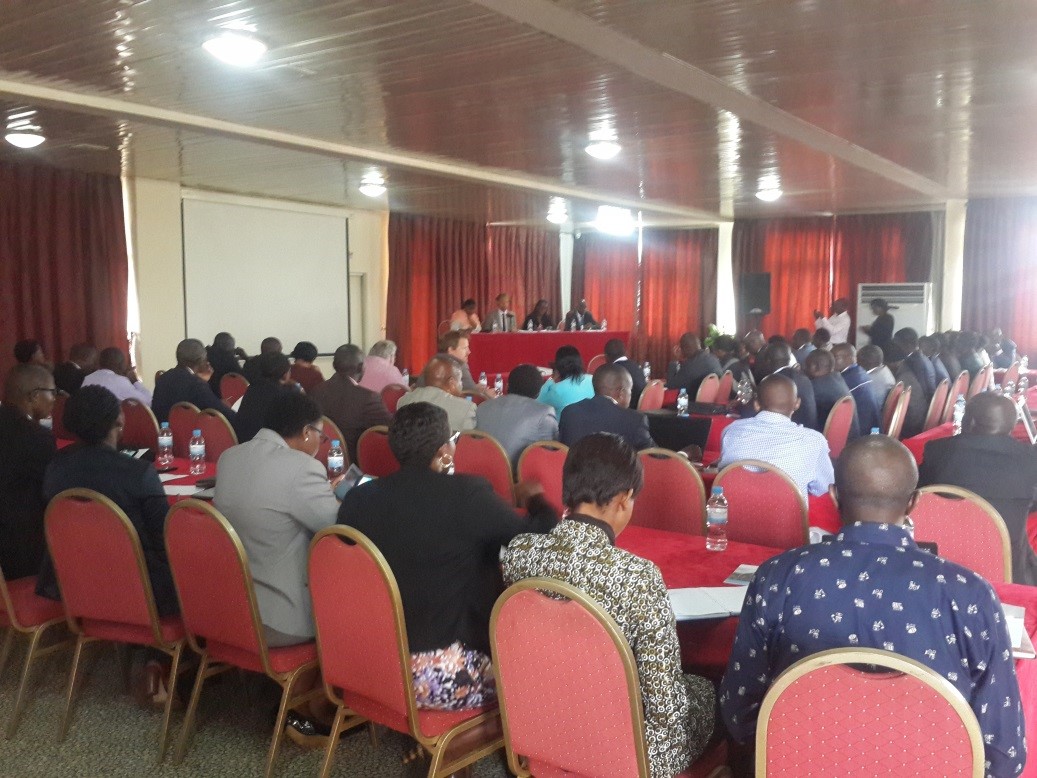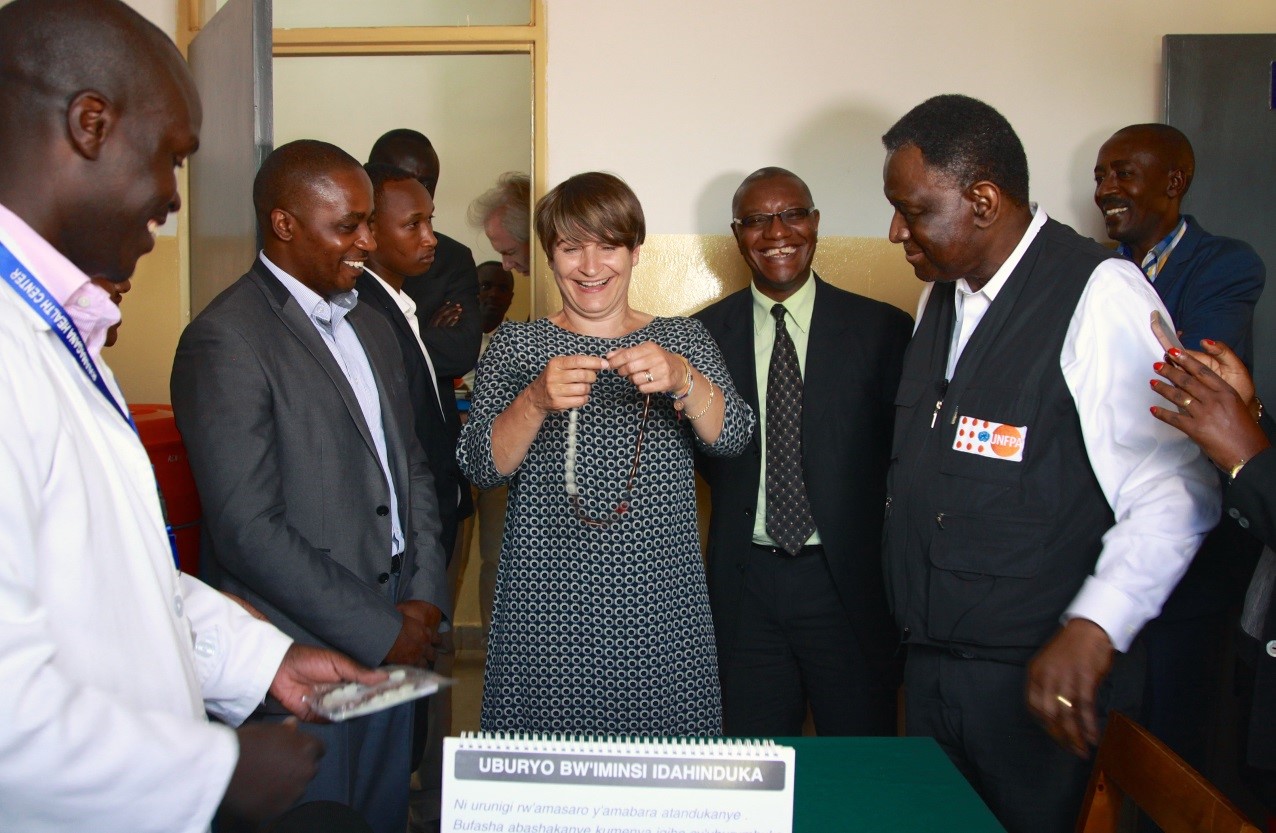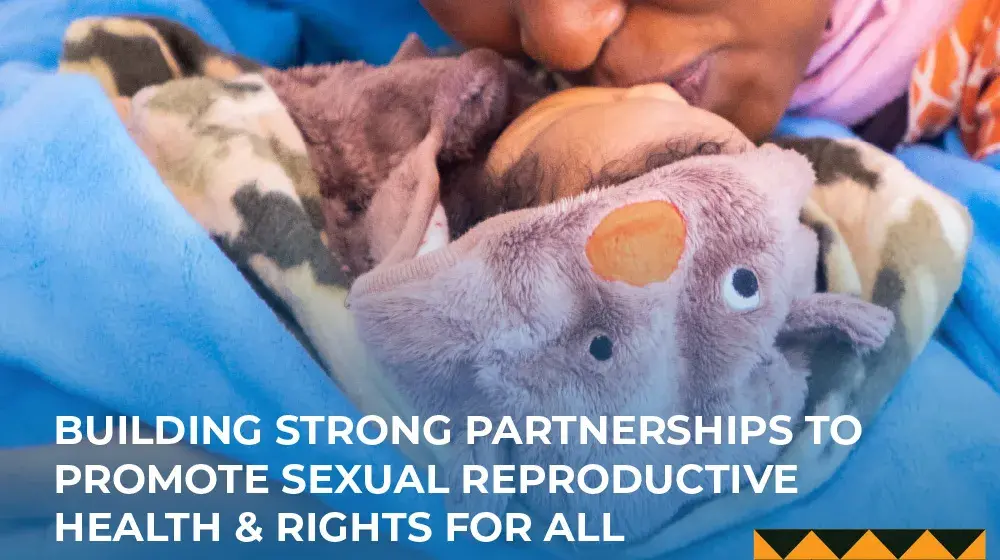Hundreds of family planning stakeholders from across the country convened on 09 May 2017 to collectively commit to accelerating family planning in Rwanda. Government leadership, development partners, international and local NGOs, Civil Society, and religious leaders deliberated on progress and gaps in, advancing voluntary, rights-based family planning, and defined clear roles and responsibilities required to achieve.
The Round Table on Family Planning was organized by the Ministry of Health with support from partners including UNFPA, and focused on accelerating efforts and exploring new effective strategies to reach national targets on the use of family planning in Rwanda..
Appreciating stakeholders during her opening remarks, Honorable Dr. Diane Gashumba, Minister of Health emphasized the need to further advance the agenda, partner closer with beneficiaries and teach them about family planning, especially addressing teenage pregnancies.

“In just one day, during the end of February monthly community work known as “Umuganda”, we were able to register 25,000new users of family planning! Let us all join efforts especially healthcare providers to increase awareness through campaigns to reach out to local people in rural areas” she emphasized.
Minister Gashumba also pointed out that the new global development agenda and evolving financing architecture leaves little doubt that stronger coordination
Photo: Family planning stakeholders in round table discussion at Umubano Hotel. On the high table; Representative, World Health Organization, Minister of Health, UNFPA Representative and Director General, Rwanda Biomedical Center.
and collaboration among partners is required, and necessary to help achieve the holistic Sustainable Development Agenda and it calls for innovative thinking, new partnerships and more effective implementation modalities drawing from the experience, the institutional context, and the reality on the ground with roles and responsibilities to be played by each of the stakeholder.

UNFPA Representative. Mark Bryan Schreiner, added,“Increased Investments in Family Planning impacts the lives of individuals, families and the country at large specifically linked to improved maternal and child survival and decreased levels of stunting in children. By allowing greater control of their fertility, family planning also contributes to the empowerment of women and their increased social and economic participationwhich benefits the economy”,Rwanda increased contraceptive use at one of the most rapid rates worldwide in ten years from 2000 registering contraceptive prevalence rate reaching 45 percent from 4 percent. In the same period, Rwanda achieved a decline in total fertility rate from 5.8 children per woman to 4.6.
However, data indicates that progress has significantly slowed down in the last five years; between 2010 and 2015, use of modern contraceptive methods increased by just 3%. A worrying situation that calls for contributions from all stakeholders if Rwanda is to achieve the ambitious goals it has set in the Health Sector Strategic Plan.
Nurse Rosette giving a client family planning method in Gisenyi Hospital
What are the Challenges?
Unavailability and scarcity of trained community health workers and health center focal point at all health facilities who can deliver services, insufficient health posts to deliver service where faith based HF located, and inadequate integration of service (workload, organizing unit) due to lack of collaboration between medical schools and health facilities.
In regard to communication for behavior change in family planning, it was highlighted that beneficiaries are not receiving comprehensive information package and most especially young people.
In terms of leadership and governance, disconnection between available policies and their implementation was identified, as well as limited involvement of Private sectors, inadequate use of data especially disaggregated data and low involvement of churches: 40% of faith-based health facilities are not providing all methods.
With regards to family planning commodity supply chain, equipment and infrastructure highlighted the gaps in the areas of inaccurate estimation of the quantity to order by the health facility from District Pharmacy which leads to irrational distribution and stock out at some health facilities and overstock at others.
Monitoring and evaluation gaps include the lack of systematic systems to track management response to evaluation findings, lack of an individualized system for tracking every FP user causing loss of data on drop out/discontinuation /impedes effective follow up, limited research done on FP to inform new actions and lacking of skills in M&E.
Despite the challenges, a number of solutions were recommended including expansion of FP partnership with development partners, and capitalizing on Regional and Global forums such as 1st Africa Health Forum (June 2017 , Kigali), Global Family Planning Summit (July 2017, London) , and the International Conference on Family Planning 2018, conduct campaigns to address misconceptions and male involvement in family planning issues, building capacity of service providers, systematic systems for tracking to ensure quality assurance and strengthen FP integration in all social and development programs were among the recommendations.
The round table on family planning will help inform the revision of indicators and set realistic targets for the remaining period to be in line with the domestication of the Sustainable Development Goals and will guide the formulation of Family Planning /Adolescent Sexual Reproductive Health strategy which is currently in the process.
What is UNFPA’S role?
Access to safe, voluntary family planning is a human right. Family planning is central to gender equality and women’s empowerment, and it is a key factor in reducing poverty.

Dr. Babatunde Osotimehin, UNFPA Executive Director and H.E. Lilianne Ploumen, Minister for Trade and Development (Netherlands) visited the Rwamagana Health Center and District Pharmacy in May 2016 to view the work and impact of UNFPA Supplies in Rwanda. (2016 Photo)
“Rapid fertility decline, which is linked to increased family planning use, lowers the ratio of dependents to income earners. The results is higher proportion of wage earners and leads to national savings - an effect which is called “The Demographic Dividend” says Mr. Mark Bryan Schreiner.
UNFPA works to support family planning by: ensuring a steady, reliable supply of quality contraceptives; strengthening national health systems; advocating for policies supportive of family planning; and gathering data to support this work. UNFPA also provides global leadership in increasing access to family planning, by convening partners – including governments – to develop evidence and policies, and by offering programmatic, technical and financial assistance to developing countries.



